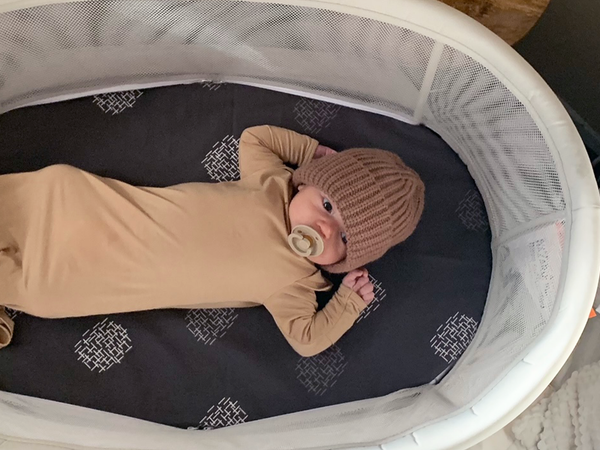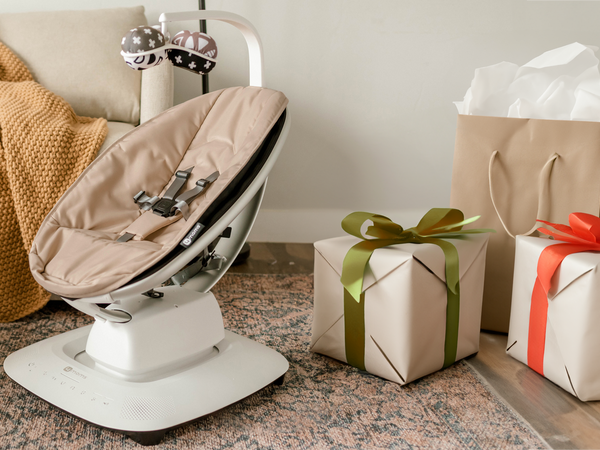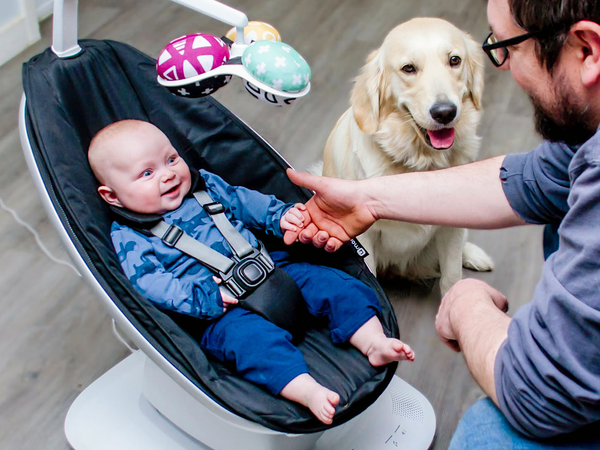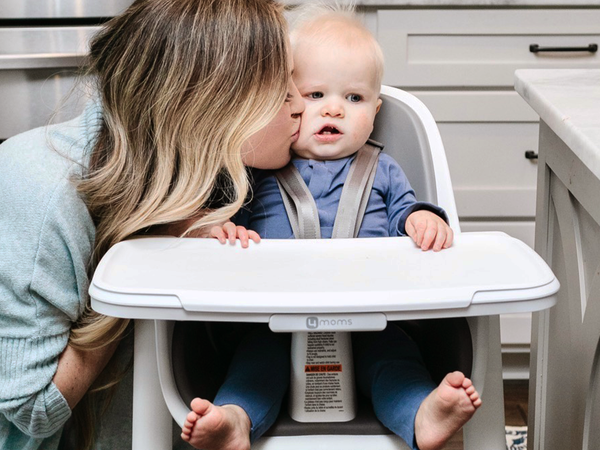Preparing For Fatherhood: 7 Tips For First-time Dads
Becoming a dad for the first time is one of the most exciting (and—let’s face it!—overwhelming!!) times in a man’s life. As you’re preparing to be a dad, we’ve got some practical tips for first time dads that can help you get ready for this next big step so you’re ready for your new role and the arrival or your little one.
Tip 1: Educate Yourself
Before you’re ready to take on the name “Dad,” remember that it’s not only important to educate yourself about how to prepare for fatherhood, but also about what happens throughout pregnancy and how to care for a new baby. Lucky for you, there are resources for first time dad advice that provide reliable sources of information about all these topics abound. Read books like the classic, What to Expect When You’re Expecting, bookmark the American Academy of Pediatrics website and countless parenting sites, and sign up for a parenting class where you’ll learn the basics of newborn care.
You should also make it a point to attend prenatal appointments with your partner or surrogate (if you can) so you can ask questions about any concerns you might have. This article has other useful suggestions to get yourself into the parenting mindset.
Tip 2: Get Involved During Pregnancy
If you're partner is carrying the baby, you can still be an active and supportive part of the pregnancy. In fact, your involvement can actually help to reduce stress and anxiety and strengthen the bond between the two of you.
Not sure how to participate? Accompany your partner to prenatal appointments (you’ll get to hear your baby’s heartbeat and see your baby on ultrasound!), help with household chores, and be emotionally available. Try to attend childbirth classes together so you’re prepared to be a supportive partner during labor and delivery.
Tip 3: Prepare Your Home
There’s a lot of work and planning that goes into getting ready for your new baby. You need to set up the nursery, make sure you’ve got all the supplies you need to care for a newborn, and baby proof the house to make sure it’s a safe environment for your baby.
- The American Academy of Pediatrics suggests that you have your baby sleep in your room (but not in your bed) until they are 6-12 months old, so a bassinet that you can pull up next to the side of your bed for late night feedings is essential
- While your baby should sleep in your room, you will probably also want to create a space in your home just for them. When setting up the nursery, you can be as elaborate or as streamlined as you like. At a minimum, your baby will need a crib, a changing area (a dresser with a changing pad does double duty, providing a spot to store clothes and change diapers), and a rocking chair or glider.
- An all-in-one-care station like the 4moms® Breeze® Plus Plaryard doubles as a bassinet and a diaper-changing station during the early weeks and months with your baby. Make sure it’s stocked with diapers, wipes, diaper creams, and a few changes of clothes so you’re ready to go when you bring your baby home.
- Not sure if you’ve created a safe environment for your baby? Check out our Babyproofing Checklist to make sure you haven’t forgotten any potential danger zones in your home.
Tip 4: Develop Parenting Skills
Once you’ve got your home ready for your baby’s arrival, it’s time to make sure you’re ready for their arrival too. Your baby will rely on you for everything, but taking care of a tiny newborn is not necessarily intuitive: you need to learn new skills to look after them.
Most hospitals offer classes on the basics of newborn care where you can practice diapering, dressing, and swaddling a lifelike baby doll so you can confidently care for your baby when you bring them home. Keeping these tips in mind can also help:
- Diaper Changing: The key to a successful diaper change? Having all your supplies ready and within reach. (Trust us on this one: you do NOT want to find out in the midst of changing a dirty diaper that the wipes container is empty.) After removing the diaper, gently wipe your baby front to back, then apply diaper cream if needed and put on a fresh diaper.
- Burping: Babies have to burp after eating to get rid of gas that builds up in their tummies, but they need a hand from you—literally!—to get some relief. Read this article for step-by-step tips to help you master the art of burping your baby.
- Soothing: If your baby is fussy, you can try to calm them down with infant massage, soothing sounds, or swaddling.
Tip 5: Create a Support System
As a first time dad, you’ll probably have lots of questions about how to parent and how to make the adjustment to becoming a dad. If you don’t already have a network of family, friends, and healthcare professionals that you can turn to for support and advice (or even if you do!) you may want to join a local or online parenting group so you have someone in your corner. And remember: it’s okay to ask for help when you need it.
Tip 6: Take Care of Yourself
As a first-time dad, you’ll quickly understand that if you don't take care of yourself, you can’t take care of the tiny little human who counts on you for everything. While becoming a dad for the first time is one of the most exciting things that will happen to you in your life, research shows that it’s also one of the most stressful. On top of adjusting to being a dad for the first time, you may be juggling the demands of a busy job and taking care of a home, so take steps to manage your stress:
- Get plenty of sleep: We know it’s not easy with a newborn but try to squeeze in sleep when your baby is sleeping and remember, all those 2am feedings won’t last forever. Eventually, your baby will sleep through the night.
- Eat healthy food: When caring for a newborn, it’s hard enough to find time to eat much less to cook three healthy meals a day. But that doesn’t mean you need to subsist on chips and take out. Stock your fridge and pantry with healthy grab-and-go choices that can power you through the day, like sliced fruits and veggies, hard boiled eggs, yogurt, and power bars.
- Keep active: Scheduling in a gym workout might not be in your immediate future, but staying physically active with a newborn is easier than you think. Plan for a daily walk around the neighborhood with your baby in a stroller or a baby carrier, squeeze in a quick yoga session during naptime, or do some squats and lunges while you’re holding your baby close.
- Pay attention to your mental health: If you’re feeling a little overwhelmed, know that these feelings are normal. But be aware that it’s not just moms who suffer from postpartum depression: one in 10 dads struggle with it as well. If you find yourself feeling angry, irritable, withdrawn or depressed, it’s time to seek medical attention.
Tip 7: Bond with Your Baby
Studies show that there are surprising benefits for newborns who spend quality time with their dads: they grow to be more secure, confident, independent, and curious, and even handle stressful situations better. But bonding isn’t just good for your baby: it’s good for you and your relationship with your partner, too. Dads who are actively involved in their kid’s lives tend to have better mental and physical health and happier relationships with their significant other.
Not sure where to start? Spend time talking and singing with your baby every day and try skin-to-skin contact, where you lay your baby directly on your bare chest.
You’ve Got this Dad!
Preparing for fatherhood for the first time is exciting—and potentially terrifying. As you get ready to become a dad, these seven tips can ease the transition and ensure you’re ready for the journey!

















